“This year's table grape campaign, which takes place between July and December, is marked by good production volumes, even for the local Crimson variety with seeds. So far, the prices have been acceptable. It is true that the quality has been variable and the rains have had an impact on it; however, the damage caused by the recent heavy storms has been limited,” said José Luis Hernández, president of COATO.
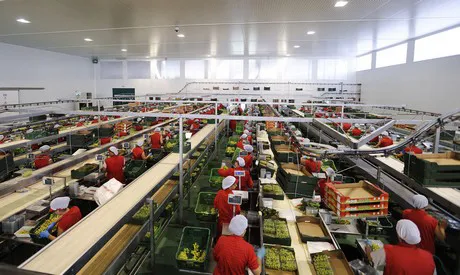
Murcia leading with new table grape varieties
COATO has been converting table grape plantations for 30 years, moving from traditional varieties with seeds to seedless grapes. Murcia is a leader in this field, with the work on varietal conversion carried out by the Murcian Society of Table Grape Research and Technology (ITUM) and the Murcian Institute of Agrarian and Food Development (IMIDA). "These licenses have great future prospects, with the varieties being planted even in Peru, South Africa and Chile. The most demanded are the Itumone, Itumfour, Itumfive and Itumfifteen, among others," explains José Luis Hernández.
"Their balance between Brix, texture, skin resistance and shelf life also allow them to remain suitable for consumption for between 15 and 20 days. The varieties with seeds are demanded domestically, but 80% of the seedless table grapes are shipped to the United Kingdom, Germany and the Nordic countries. At the same time, Spain is opening new markets in Arab and Asian countries,” says José Luis.
Lettuce consumption continues to increase
According to José Luis Hernández, Spanish lettuce is going through a good time, especially the iceberg, the minis and the romaine. "It is a fact that the rise of the fresh cut and ready-to-eat range has given the sector a boost. 90% of Spanish lettuce is exported across Europe, mostly to the United Kingdom, Germany and the Nordic countries. Without a doubt, quick consumption trends have been good for the fresh sector in general and made it possible to make the most out of more residual products,” says the president of COATO.
José Luis Hernández, president of COATO
Broccoli will continue to be shipped to the United Kingdom
“Regarding the future of trade with the United Kingdom, we are convinced that the British authorities and those of the European Union will reach a reasonable agreement for all. We all have a lot to lose, and a scenario in which the smooth importation of products intended for consumers in the United Kingdom becomes difficult is unthinkable,” says José Luis Hernández.
“I don't think that Brexit should worry us, as we expect a viable commercial agreement to be reached at the last minute. It is impossible to foresee a scenario in which the United Kingdom is left unsupplied. Products have always been sold and will continue to be consumed,” says José Luis Hernández.
“Broccoli, a vegetable typically for British consumption, maintains its consumption volumes at European level. Currently, the Spanish production is filling production gaps in northern countries, especially in the United Kingdom, where the domestic harvest ends in October and won't start again until June,” says the president of COATO.
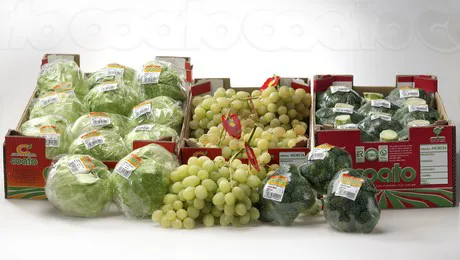
“In the specific case of broccoli, but also in that of other vegetables, the growing competition is a challenge. And it often happens that there is more supply than demand, with occasional surpluses; hence, planning is vital, even if it is the most difficult part. An example of this is the recent heavy storms that have brought everything to a halt. You can stop planting for two weeks, even though the harvest will arrive all at once, instead of staggered. The rains and storms recorded in Murcia and other areas of the south east in recent weeks shouldn't cause any market shortages.”
“The market deals with supply gaps and, sometimes, excesses. The weather conditions have a greater impact than many think, and not only in terms of volume; the consumption is also affected. This is the case of watermelons, whose demand is always closely linked to the temperatures,” he says.
“The smart and essential approach is not to waste resources”
The Murcia-based cooperative has been using 100% recycled cardboard packaging for almost 20 years. “17 years ago, we were the only company awarded for environmental innovation. We've had this awareness since the cooperative's founding. The essential approach is not to consume non-replaceable resources. We also don't think it makes much sense to deal with organic products and then use packaging, or import from abroad. We have everything possible made with cardboard in order to avoid plastic.”
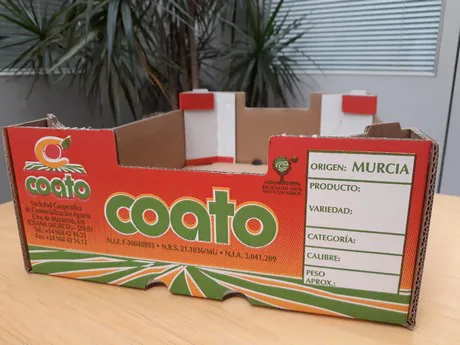
Small plots make organic certification difficult
“The vegetables of our partners have clashed against some physical barriers. Since they have small farms and a limited number of hectares, they are usually surrounded by conventional agriculture, and the phytosanitary treatments carried out in adjacent plots can affect the organic product due to contamination. To avoid this problem, strict security measures are necessary.”
“Since we have already managed to become European leaders in terms of organic acreage, it is to be expected that Spain will become the largest European exporter. Given that companies like Amazon have already made a commitment to bio-retail, it is clear that the trend towards organic consumption is not a simple fashion,” says José Luis Hernández, adding that “even in markets that are difficult to gain access to, like the almond one in the US, Spain has managed to position itself thanks to its organic almonds.”
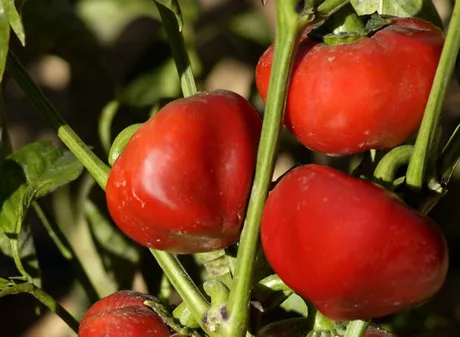
COATO has farms in the Region of Murcia, Andalusia, the Region of Valencia and Castile-La Mancha, with 21,000 hectares of integrated or sustainable agriculture and 14,000 of sustainable organic and organic agriculture.
The cooperative, based in the town of Totana, in Murcia, started in 1979 with 65 producers, cultivating peppers intended for processing into paprika powder, handling also the packaging and marketing.
"This round pepper has existed for centuries, and the Designation of Origin of Murcia is comparable to that of La Vera, Espelette (in France) and Kalocsa (in Hungary)," says José Luis Hernández.
It is currently one of the most powerful cooperatives in the sector thanks to its activity with fresh fruits and vegetables, almonds, oil, honey, etc. and it works with 2,000 cooperative members; a figure that rises to 3,000 if we include the 1,000 indirect members integrated in the associated cooperatives.
For more information: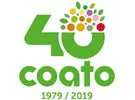
COATO SCoop
Carretera de Mazarrón s/n km2
30850 Totana, Murcia. Spain
T: +34968424621
coato@coato.com
www.coato.com
